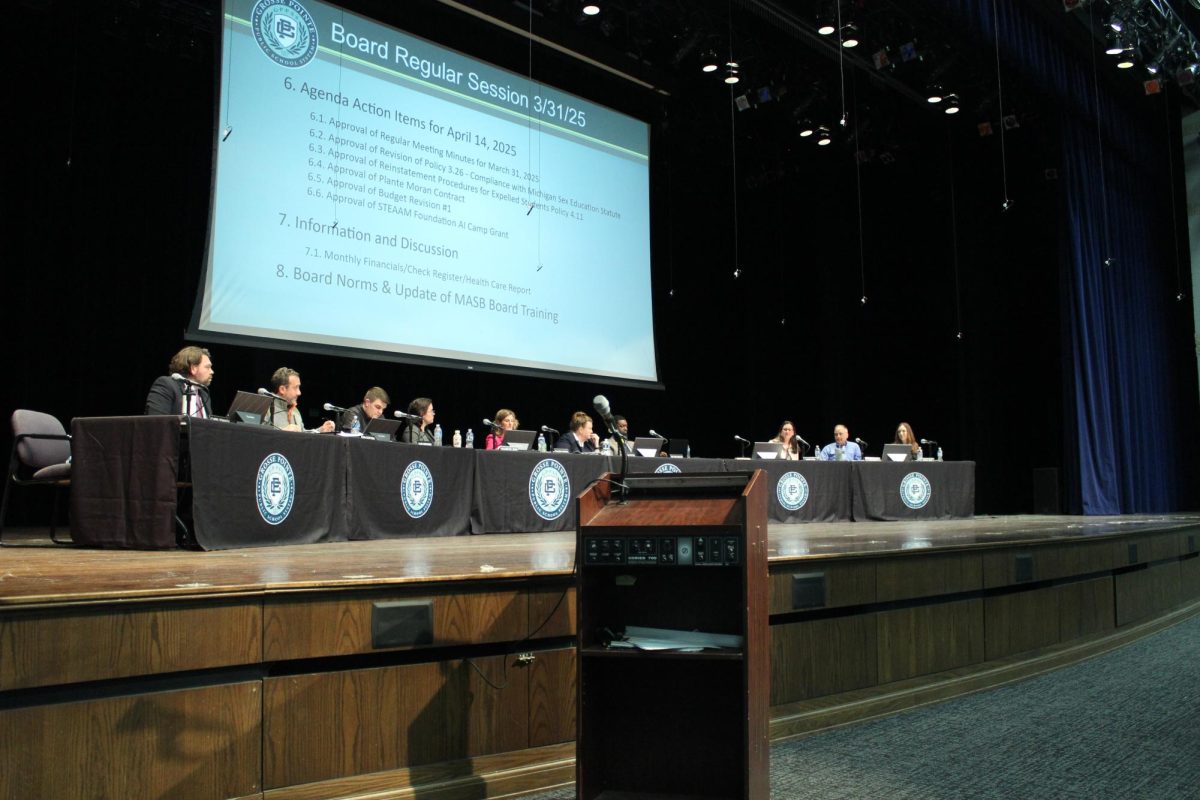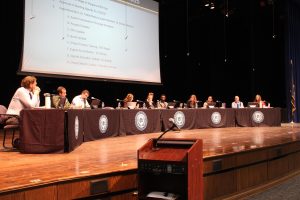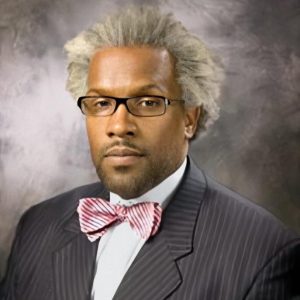The importance of diversifying our curriculum
February 9, 2020
Multiculturalism exists to support the variety of ethnicities in our increasingly diverse country. According to the Census Bureau, Grosse Pointe has steadily become more racially diverse, with minority demographics increasing by 5.8 percent in the last 20 years.
With initiatives such as curriculum review, our school has the opportunity to integrate more diverse ideas into classrooms that represent the socio-cultural changes occurring in the student demographic. Whether it is in Health, Social Studies or English class, we at The Tower believe there is more than one perspective that students should be learning about.
A majority of our curriculum is based on the uniform narratives that are embedded in our institutions; the key to diversifying curricula is a change in narrative. By seeking out authors belonging to marginalized groups and learning about history from a non-Eurocentric angle, students can learn from voices that are typically suppressed, ultimately allowing them to be knowledgeable about our modern, multicultural society.
Within English classes, more literature from authors of color has been incorporated into supplemental readings and even used as the core text in units such as in Honors American Literature. However, oftentimes the black works we read in the classroom consist of the same select authors and poets. The tokenization of these authors of color creates a shallow understanding of the extensive range of writers and the varying perspectives they have to offer.
Classic works like “To Kill A Mockingbird” and “The Narrative of the Life of Frederick Douglass” are valuable in creating a dialogue on race in America, but should not be the only texts from which we learn. The lessons from these books unintentionally reinforce the idea that widespread hate has ended when not paired with more modern texts. That can cause a cultural lag in students’ perception of current events beyond Grosse Pointe.
Although this inclusion of work beyond the scope of the traditional white male perspective is a step towards the necessary representation we need, the literature only creates a stereotype of what the minority experience actually entails. And if this is the only source of diversified education our students receive, it perpetuates the harmful narrative that authors of color solely exist to express their suffering and struggles. Instead of embracing the culture of underrepresented students and faculty, it teaches our students that people of color cannot be acclaimed for their traits other than their identity and ignores the possibility of them being leaders, heroes or the protagonists in their own stories.
Although there are many people who are hesitant to change their ways, there will always be just as many people willing to seek something new. We at The Tower believe that there is value in the minds of youth, therefore it is imperative that students expand their knowledge of the world even if the classroom has failed them. The process of modifying a curriculum that has served our community by catering to the majority will demand critical review and time to compensate for decades of antiquated teachings.













































































